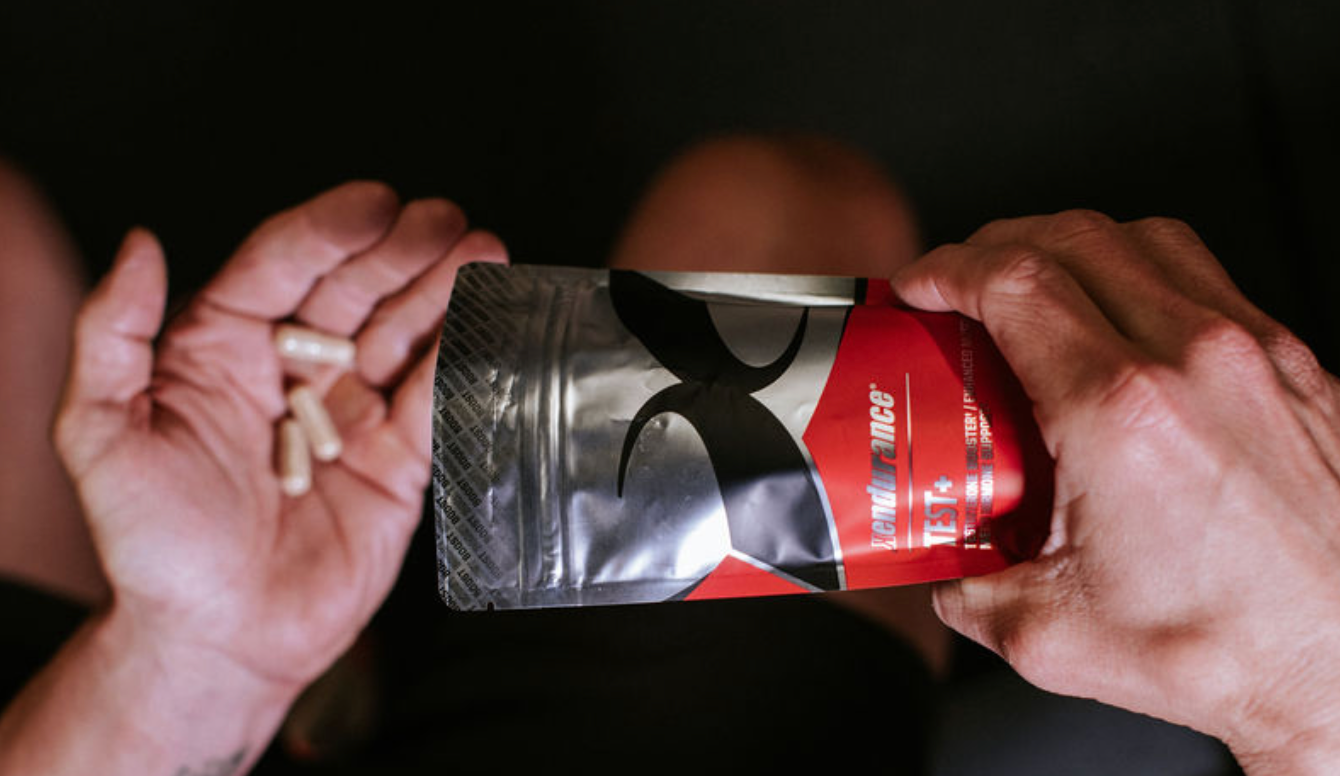Do you kickstart your day with a mug of dark, flavorful coffee, or do you savor the gentle boost of caffeine from a steaming cup of green tea?
Caffeine, a naturally occurring stimulant found in coffee, tea, energy drinks, and supplements, is one of the most widely consumed psychoactive substances in the world. Its ability to enhance mental alertness is well-known, but caffeine’s impact on physical performance, particularly in exercise, has garnered significant attention from athletes, fitness enthusiasts, and researchers alike. By acting on the central nervous system, caffeine can improve various aspects of exercise performance, including endurance, strength, power, and recovery. This blog explores the mechanisms by which caffeine exerts its ergogenic (performance-enhancing) effects, its benefits across different types of exercise, potential drawbacks, and practical considerations for its use, based on scientific evidence and insights from recent discussions.
Mechanisms of Caffeine’s Ergogenic Effects
Caffeine’s primary mechanism of action involves its role as an adenosine receptor antagonist. Adenosine is a neurotransmitter that promotes relaxation and sleepiness by binding to receptors in the brain. Caffeine competes with adenosine for these receptors, effectively blocking its calming effects and increasing alertness and arousal. This central nervous system stimulation is critical for exercise performance, as it reduces the perception of effort and fatigue, allowing individuals to push harder and longer during physical activity.
Additionally, caffeine influences the release of catecholamines such as adrenaline (epinephrine), which prepare the body for physical exertion by increasing heart rate, mobilizing fat stores, and enhancing blood flow to muscles. This “fight-or-flight” response primes the body for intense exercise, improving energy availability and muscle contractility. Caffeine also promotes the release of calcium within muscle cells, which enhances muscle contraction efficiency, particularly during high-intensity efforts.
Another key mechanism is caffeine’s ability to increase fat oxidation. By stimulating the breakdown of stored fat for energy, caffeine spares glycogen (stored carbohydrates) in muscles, which is a critical fuel source during prolonged exercise. This glycogen-sparing effect is particularly beneficial for endurance athletes, as it delays the onset of fatigue associated with glycogen depletion.
How Green Tea vs Coffee Caffeine Shape Your Energy
Caffeine from green tea and coffee beans differs primarily in its concentration, accompanying compounds, and effects on the body. Green tea contains less caffeine (20-45 mg per 8 oz) compared to coffee (95-200 mg per 8 oz), resulting in a milder stimulant effect. Green tea also contains L-theanine, an amino acid that promotes relaxation and moderates caffeine’s jittery effects, creating a smoother, more sustained energy boost. Coffee, on the other hand, delivers a stronger, more immediate stimulant effect due to its higher caffeine content and lacks L-theanine, though it contains antioxidants like chlorogenic acids. These differences make green tea’s caffeine profile better suited for calm focus, while coffee is ideal for intense, rapid energy surges.
Benefits of Caffeine for Exercise Performance
Caffeine’s ergogenic effects are well-documented across various types of exercise, including endurance, strength, and high-intensity activities. Below, we explore its specific benefits based on recent research and insights.
1. Enhanced Endurance Performance
Endurance activities, such as running, cycling, or swimming, rely heavily on aerobic energy systems and sustained effort over long periods. Caffeine has been shown to significantly improve endurance performance by reducing perceived exertion and increasing time to exhaustion. A systematic review highlighted in the sources found that caffeine ingestion improved endurance performance by an average of 2-4% across various studies. This improvement is attributed to caffeine’s ability to enhance fat oxidation, spare glycogen, and lower the subjective feeling of fatigue.
For example, a study involving cyclists found that those who consumed 3-6 mg of caffeine per kilogram of body weight (mg/kg) 60 minutes before exercise were able to cycle longer before reaching exhaustion compared to a placebo group. This translates to practical benefits for athletes competing in marathons or triathlons, where even small improvements in performance can make a significant difference.
2. Improved Strength and Power Output
Caffeine’s benefits are not limited to endurance; it also enhances strength and power-based activities, such as weightlifting, sprinting, and team sports. By stimulating the central nervous system and improving muscle contraction efficiency, caffeine can increase maximal strength, power output, and sprint performance. A meta-analysis cited in the sources reported that caffeine ingestion led to a 2-7% improvement in strength outcomes, including one-repetition maximum (1RM) lifts, and a similar increase in power output during activities like vertical jumps and Wingate tests (a high-intensity cycling test).
For instance, athletes performing resistance training may experience greater force production during heavy lifts, such as squats or bench presses, after consuming caffeine. Similarly, sprinters and rugby players can benefit from improved explosive power during short, intense bursts of activity. These effects are likely due to caffeine’s enhancement of motor unit recruitment and calcium release in muscles, which optimize force generation.
3. Enhanced High-Intensity Interval Training (HIIT) Performance
High-intensity interval training (HIIT), which involves alternating periods of intense effort with recovery, has gained popularity for its efficiency in improving fitness. Caffeine can enhance HIIT performance by increasing work capacity and reducing fatigue during repeated bouts of high-intensity exercise. Research indicates that caffeine improves total work performed during HIIT sessions, allowing individuals to complete more repetitions or maintain higher intensities.
This is particularly relevant for athletes in sports like soccer or basketball, where repeated sprints and quick recovery are essential. Caffeine’s ability to lower perceived effort and enhance mental focus also helps athletes maintain motivation during demanding HIIT workouts.
4. Improved Mental Focus and Reaction Time
Exercise performance is not solely physical; mental acuity plays a critical role, especially in sports requiring quick decision-making and precision. Caffeine’s stimulant effects improve cognitive function, including focus, reaction time, and vigilance. Studies have shown that caffeine ingestion enhances reaction time by 5-10% and improves accuracy in tasks requiring sustained attention.
For example, a tennis player may benefit from faster reaction times when returning a serve, while a boxer could maintain better focus during a long match. These cognitive benefits are particularly pronounced in fatigued states, making caffeine a valuable tool for athletes competing in prolonged or multi-event competitions.
5. Potential for Faster Recovery
Emerging evidence suggests that caffeine may aid in post-exercise recovery, particularly when combined with carbohydrates. Caffeine enhances glycogeby increasing glucose uptake in muscles, which helps replenish energy stores more quickly after endurance exercise. A study cited in the sources found that athletes who consumed caffeine with carbohydrates after exhaustive exercise had 66% higher glycogen resynthesis rates compared to those consuming carbohydrates alone.
Additionally, caffeine’s anti-inflammatory properties may reduce muscle soreness and improve recovery from high-intensity workouts. This is particularly beneficial for athletes training multiple times per day or competing in multi-day events.
Practical Considerations for Caffeine Use
While caffeine offers significant benefits for exercise performance, its effectiveness depends on several factors, including dosage, timing, individual response, and tolerance. Below are key considerations for optimizing caffeine’s ergogenic effects.
1. Dosage
The optimal caffeine dose for exercise performance typically ranges from 3-6 mg/kg of body weight, consumed 30-60 minutes before exercise. For a 70-kg individual, this equates to 210-420 mg of caffeine, roughly equivalent to 2-4 cups of coffee. Higher doses (e.g., 9 mg/kg) do not necessarily provide additional benefits and may increase the risk of side effects, such as jitteriness, anxiety, or gastrointestinal discomfort.
Low to moderate doses (1-3 mg/kg) can still be effective, particularly for individuals sensitive to caffeine or those using it for cognitive benefits. Athletes should experiment with dosages during training to determine what works best for them.
2. Timing
Caffeine is typically consumed 30-60 minutes before exercise to allow peak blood concentrations during activity. However, some studies suggest that caffeine’s effects can persist for several hours, so timing may be less critical for longer events. For sustained-release forms, such as caffeine gum or capsules, ingestion 10-15 minutes before exercise may suffice.
3. Sources of Caffeine
Caffeine is available in various forms, including coffee, tea, energy drinks, gels, chews, and supplements. Each has its advantages: coffee provides a natural source with antioxidants, while supplements offer precise dosing. Athletes should choose a source that is convenient, palatable, and well-tolerated. For example, caffeine gels are popular among endurance athletes for their portability and rapid absorption.
4. Individual Variability and Tolerance
Responses to caffeine vary widely due to genetic factors, habitual caffeine use, and sensitivity. Regular caffeine consumers may develop tolerance, requiring higher doses to achieve the same ergogenic effects. To maintain sensitivity, some athletes cycle their caffeine intake, reducing consumption on non-training days or abstaining for several days before a competition.
Genetic variations in the CYP1A2 gene, which metabolizes caffeine, also influence its effects. “Fast” metabolizers may experience greater benefits, while “slow” metabolizers may be more prone to side effects. Athletes can use trial and error or genetic testing to tailor their caffeine use.
5. Potential Side Effects
While caffeine is generally safe at recommended doses, excessive intake can cause side effects, including increased heart rate, anxiety, insomnia, and gastrointestinal issues. These are more likely in caffeine-naive individuals or with doses exceeding 6 mg/kg. Athletes should avoid combining high doses of caffeine with other stimulants and ensure adequate hydration, as caffeine has a mild diuretic effect.
Limitations and Considerations of Caffeine
Despite its benefits, caffeine is not a universal solution for all athletes or exercise scenarios. Its effects may be less pronounced in habitual users, and some individuals may experience adverse reactions that outweigh the benefits. Additionally, caffeine’s efficacy may vary depending on the type of exercise, environmental conditions (e.g., heat), and the athlete’s fitness level. For example, highly trained athletes may experience smaller relative improvements compared to recreational exercisers due to their already optimized performance.
Ethical considerations also arise in competitive sports. While caffeine is permitted by the World Anti-Doping Agency (WADA), athletes must adhere to guidelines and avoid excessive use that could raise health concerns. Coaches and sports nutritionists should educate athletes on safe and effective caffeine use to maximize benefits while minimizing risks.
Unlocking Athletic Potential with Caffeine’s Ergogenic Power
Caffeine is a powerful ergogenic aid with well-established benefits for exercise performance. By reducing perceived effort, enhancing fat oxidation, improving muscle contraction, and boosting mental focus, caffeine can improve endurance, strength, power, and recovery across a wide range of activities. Optimal use requires careful consideration of dosage, timing, and individual factors, with athletes encouraged to experiment in training to find their ideal protocol. While not without potential drawbacks, caffeine’s accessibility, affordability, and robust scientific backing make it a valuable tool for athletes and fitness enthusiasts seeking to elevate their performance. As research continues to uncover new insights, caffeine’s role in exercise science is likely to remain a cornerstone of performance optimization.









Leave a comment
This site is protected by hCaptcha and the hCaptcha Privacy Policy and Terms of Service apply.